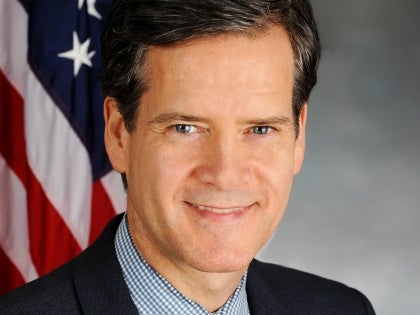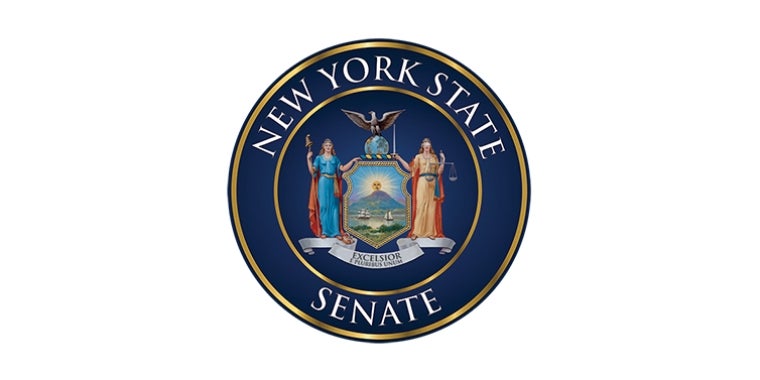
Senators Brad Hoylman & Jamaal Bailey Introduce "Rap Music on Trial" Legislation to Prevent Song Lyrics From Being Used As Evidence In Criminal Cases
November 17, 2021
NEW YORK—Today, Senator Brad Hoylman (D/WFP-Manhattan) and Senator Jamaal Bailey (D-The Bronx) introduced “Rap Music on Trial” legislation (S.7527) to enhance the free speech protections of New Yorkers by banning the use of art created by a defendant as evidence against them in a courtroom. The legislation will protect all artists and content creators, including rappers from having their lyrics wielded against them by prosecutors.
In September 2019 in a New York District Court, the lyrics of rap music artist Daniel Hernandez (better known as Tekashi69 or 6ix9ine) were introduced in court and used to compel Hernandez into becoming a government witness to avoid harsher sentencing. As recently as this January, a Maryland Appeals Court decided to allow prosecutors to submit rap music recorded by Lawrence Montague as evidence against him in a trial, despite a dissenting judge stating that the “rap lyrics had little to no probative value.”
The legislation from Senator Hoylman and Bailey (attached) would guarantee freedom of creative expression in New York by prohibiting prosecutors from using creative expression as criminal evidence against a person without clear and convincing proof that there is a literal, factual nexus between the creative expression and the facts of the case.
Senator Hoylman said: “Art is creative expression, not a blueprint of criminal plans. Yet we’ve seen prosecutors in New York and across the country try to use rap music lyrics as evidence in criminal cases, a practice upheld this year by a Maryland court. It’s time to end the egregious bias against certain genres of music, like rap, and protect the First Amendment rights of all artists. I’m proud to introduce this legislation so that New York leads the way in treating artists fairly, no matter their background.”
Senator Bailey said: “The right to free speech is enshrined in our federal and state constitutions because it is through this right that we can preserve all of our other fundamental rights. The admission of art as criminal evidence only serves to erode this fundamental right, and the use of rap and hip-hop lyrics in particular is emblematic of the systemic racism that permeates our criminal justice system. In many cases, even the mere association with certain genres, like hip-hop and rap, leads to heightened scrutiny in the courtroom and is used to presume guilt, immorality, and propensity for criminal activity. This bill will finally put an end to this grossly discriminatory practice by ensuring that there is a valid nexus between the speech sought to be admitted into evidence and the crime alleged.”
Recent scholarship has highlighted a disturbing trend poised to threaten the haven New York has always provided its artists. In courtrooms across the country, artists’ musical works are being admitted against them as “evidence” in criminal proceedings. Just as concerning, the mere appreciation of others’ music--whether through reposting lyrics, performing, or simply listening--is also being used as “evidence.” Unchecked, these practices chill free expression, transform the figurative into fact, and warp criminal courts into instruments for suppressing provocative speech. Moreover, these practices ignore the foundational principle that a criminal case should be tried on the facts and not on a person’s “propensity” to commit the crime.
Rap has come under scrutiny for decades, being blamed by the media for criminal activity, and admitted as evidence of criminal behavior by the artist. Social scientists have linked anti-rap attitudes and racially discriminatory behavior. But rap is just like any other creative expression. The New Jersey Supreme Court wrote that “one cannot presume that simply because an author has chosen to write about certain topics, he or she has acted in accordance with those views” (State v. Skinner, 218 N.J. 496, 517, 521 (2014)). The court noted that no one believes that Bob Marley actually “shot the sheriff,” or that there’s a man buried in Edgar Allan Poe’s floorboards.
###
Share this Article or Press Release
Newsroom
Go to Newsroom
H.E.L.P. (“Harness Expertise of Licensed Professionals”) Act
November 19, 2024

Letter to NYS DOT on Route 9A
November 8, 2024
